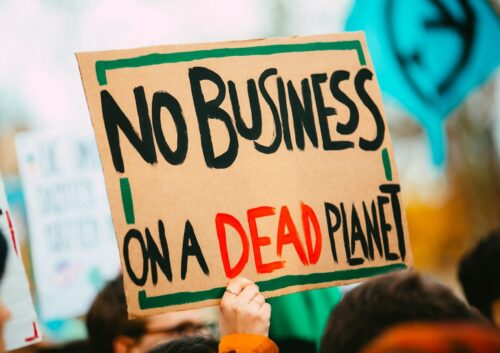The Biden-Harris administration says that its stringent power plant rules won’t harm long-term power reliability, but four grid operators stated the exact opposite in a legal brief filed Friday. [emphasis, links added]
The Environmental Protection Agency (EPA) finalized its aggressive emissions rules for America’s power plants in April, saying at the time that the regulations would “improve public health without disrupting the delivery of reliable electricity.”
However, four major regional grid operators argued the exact opposite in an amicus brief filed in support of red states’ legal challenge against the rule, stating explicitly that the rules will jeopardize Americans’ ability to reliably secure sufficient amounts of power if they are enforced as is.
“Their proffered brief outlines in detail that without additional modification, the compliance timelines and related provisions of the Rule are not workable and are destined to trigger an acceleration in the pace of premature retirements of electric generation units that possess critical reliability attributes at the very time when such generation is needed to support ever-increasing electricity demand because of the growth of the digital economy and the need to ensure adequate back-up generation to support an increasing amount of intermittent renewable generation,” the grid operators wrote in their amicus brief.
“Such inevitable and foreseeable premature retirement decisions resulting from the Rule’s timelines will substantially strain each of the Joint [independent system operators’] / [regional transmission organizations’] ability to maintain the reliability of the electric power grid to meet the needs of the citizenry and the country’s economy.”
The Midcontinent Independent System Operator (MISO), PJM, Southwest Power Pool (SPP), and the Electric Reliability Council of Texas (ERCOT) teamed up to file the brief. The four operators serve a combined 156 million customers, according to the brief’s text.
Specifically, the EPA’s rules will mandate existing coal plants to harness 90% of their emissions by 2032 if they want to stay open past 2039, and they will also require new natural gas-fired plants to do the same to stay open past 2039, according to the agency.
The EPA is essentially requiring power plants to meet those emissions cuts using carbon capture and sequestration (CCS) technology, which the four grid operators contend is too expensive and unproven to be mandated on such a tight timeline.
The EPA’s finding that CCS is the “best system of emissions reduction” is also questionable, and the compliance deadlines that come from that determination “are based on overly ambitious and inadequately supported assumptions as to target dates for commercialization of CCS,” the grid operators argued in their brief.
“Those [best system of emissions reduction] determinations then drive both the rate and timing of compliance which, in turn, will drive the premature retirements of generation sources that will threaten the reliability of the electric grid even before the compliance date in the Rule.”
The claims made by the grid operators in their brief are completely at odds with what EPA has said about its rules. …snip…
Grid experts have similarly cautioned that the EPA’s rules will undermine power reliability at a time when electricity demand is expected to substantially increase due to de facto electric vehicle (EV) mandates and the rise of artificial intelligence (AI).
Federal Energy Regulatory Commission (FERC) Commissioner Mark Christie has also raised the alarm about the possibility of an acute power crisis hitting the country soon as demand is driven up and reliable supply is retired without enough adequate, reliable capacity coming online to offset those subtractions.
Read full post at Daily Caller




















We shouldn’t put America solely dependent upon Wind and Solar we need to put all of the District of Crooks(D.C.)and the UN(Useless Nations)on Wind and Solar Only
I believe that the EPA knows what’s coming and it’s what they want. They want us to use less of everything, and they’ll push us into forced conservation. It won’t matter if you can afford higher utility prices, what good is money during a blackout?
Well, it’s about time we heard from the folks who actually maintain the reliability of the grids. What I don’t understand is why all of them aren’t pointing out that the green folly emperor has no clothes.